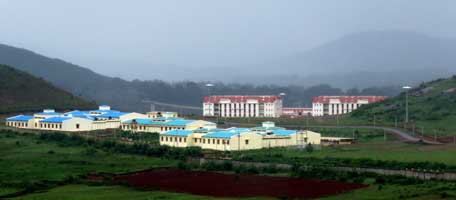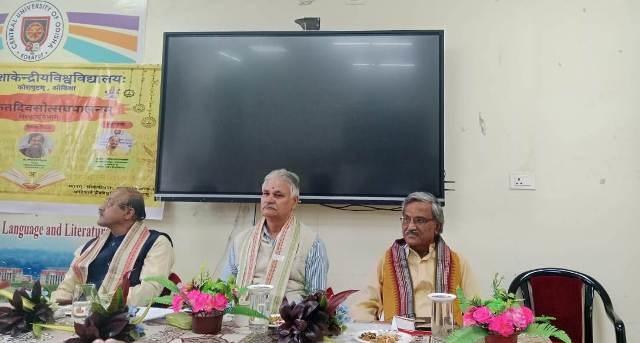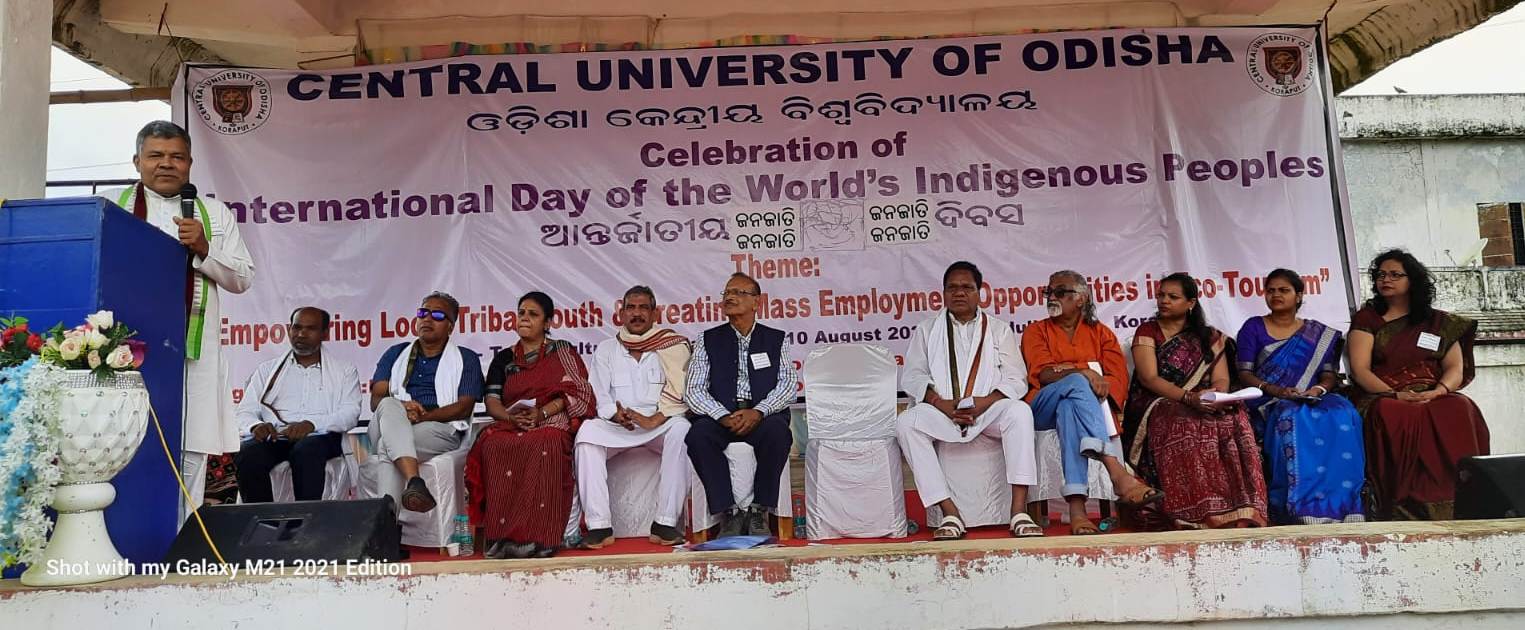Bhubaneswar: A webinar on ‘Economics of Calamity Relief Finance in India’ was organized by the Internal Quality Assurance Cell (IQAC) of the Central University of Odisha on Saturday.
Prof. Bhagabata Patro, Visiting Professor, Dept. of Economics, delivered a lecture on the above subject as the key speaker.
Prof I Ramabrahmam, Vice-Chancellor, CUO conveyed his best wishes for a successful program and hoped the students of CUO will learn the new dimension of economics relief during the calamities.
Chairing the session Prof Sharat Kumar Palita, Dean, SBCNR and Director, IQAC, delivered the welcome address and outlined the physiography, climatic conditions and regular environmental calamities witnessed in India which requires economic relief during crises by both Central and State Govt.
Defining epidemic and pandemic he said” “epidemic affects the health of living things in a particular region while pandemic spreads from one county to another and one continents to another”. He also highlighted the relief by the Government of India in the present Covid19 pandemic.
Dr. Minati Sahoo, Head I/c., Dept. of Economics delivered the introductory note and explained the relevance of the topic by citing the chronology of natural calamities in India.
Prof. Patro highlighted the basics of the Government finance system in India, the importance of financial budgeting, the structure of Government accounts, consolidated funds of India, and the history of calamities in India while deliberating the lecture on the above subjects.
He outlines the role of the Government to mitigate the disaster.
He said, “In a predominantly agrarian economy like ours, the failure of crops over large areas resulting from deficiency or failure of rainfalls, floods, cyclones or the likes necessitates State intervention”.
While speaking on the scope of calamity relief activities he outlined the seven action plan of the UNDP such as formulation of sound policy and guidelines, prevention and mitigation activities in different levels, preparedness and response before and after any calamity, recovery, reconstruction and rehabilitation, long-run capacity development, adequate financial management and international cooperation in case of a severe calamity.
He highlighted the recommendations of Finance Commissions during various financial years on disaster management in India. He also stressed helping the weaker sections of the society by private corporate and rich individuals during the calamities.
Prashant Kumar Behera, Asst. Professor, Dept. of Economics and HoD I/c of Business Management extended the vote of thanks. Large numbers of faculty, research scholars and students, including PRO Dr. Phagunath Bhoi, participated on this occasion and interacted with great enthusiasm.







